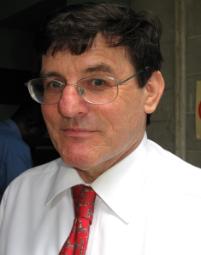Think your financial institution is safe from stealthbots? Don't bank on it!
Published on 10 December, 2010
You have your virus protection up to date and your fire walls are strong ... but are you and your files completely protected from prying eyes?
According to CQUniversity researcher Matthew Kennedy, modern day hackers known as bot-herders are developing ingenious ways to sneak under the radar to conduct malicious activities in our cyber worlds.

Matthew Kennedy is researching how to better safeguard our cyber world.And our banking data could be their key targets.
Bots are computer programs that perform tasks with some degree of autonomy. They can be used for sending spam, spying on private data, distributing malicious software, phishing attacks and other breaches of online security without the computer users knowledge or consent.
As a general rule, bot-herders make efforts to hide their botnet and implement schemes to prevent detection.
"Botnets are widely considered to be a major security threat on the Internet," Kennedy said.
"Banking fraud, using credentials captured by botnets, is becoming an increasing problem."
Kennedy believes that stealth botnets could already be lurking under the surface on computer networks, waiting for the right opportunity to attack.
"Bots can load before the actual operating system like Windows, preventing detection software from seeing it."
The CQUniversity research project hopes to develop techniques for detecting botnets that may have escaped detection by current security systems. The research aims to clarifying whether existing security measures are sufficient protection against botnets.
The project has required Kennedy to delve into historical network data using advanced detection systems, seeking out bots that have been previously undetected.
Kennedy believes this research could lead to a greater understanding of real-world botnets as well as improved prevention and detection techniques.
"All computer administrators and users could benefit from this improved computer security."
Kennedy currently works for the CQUniversity's Information Technology Division as a Senior Systems Analyst and Developer, where he has his hand on the pulse when it comes to information technology systems and processes.
Despite the extent of the first-class systems and processes in place, Kennedy believes education and research facilities like CQUniversity may not be immune to threats from bot-herders, however attacks are more likely to aim at collecting banking credentials where the gains are far more immediate.
Nonetheless, the University's cyber control centre provides a great space for research and data collection for researchers like Kennedy, who also maintains the University's main software applications.
He has come a long way since he began working at the institution back in 1986 when his main role was copying Apple II diskettes for distance education students.
Kennedy later worked as a programmer in various campus divisions. He worked on early computer-assisted learning programs and developed a number of expert systems in collaboration with the Department of Primary Industries.
However, it is the capacity of the Internet that has intrigued Kennedy in recent years, sparking the focus of his research.
"The Internet was designed to be an open system. Securing it is a difficult but important problem," Kennedy explained.
"I have had an interest in malware since disassembling the first polymorphic viruses in the early 1990s. The area is broad, deep and constantly changing."
With this ever-changing face of internet security, it is vital researchers like Kennedy keep investing in the knowledge and strategies to keep our online world safe and secure.

